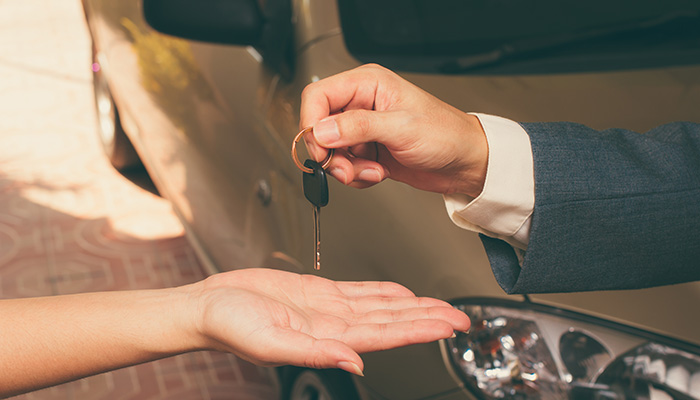2025-06-30
The Four Stages of Debt Collection
Debt Solutions
Here are the four stages of debt collection you can expect.
When people are struggling with debt, often one of their biggest worries is that they will lose their vehicle. For many, their vehicle represents not just a way to get themselves to work or the kids to hockey, but freedom itself. The idea of life without a vehicle can seem pretty bleak.

Not unexpectedly, if you fall too far behind on your car payments, the lender may exercise its right under the loan agreement to seize and sell your car to recoup its loan. In some provinces like Ontario, if the lender receives less for the car than the amount you owe on it, you will still owe that difference to the lender and the lender could choose to sue you to recover that amount.
But maybe you're managing to keep up with your car payments or you own your car "free and clear", but you’re behind on payments to your credit cards or other loans. What does this mean for your car? If your creditors sue you, can they take your vehicle?
It’s true that if your creditors successfully sue you, they may be legally allowed to seize and sell things you own to recoup the money you owe to them. But there are limitations. For instance, if you're still making payments on your car, the lender that you borrowed from to buy the car will almost certainly have registered a lien against the car that will remain until the loan is fully paid. This lien will take priority over other competing creditors and generally speaking, other creditors will not be interested in trying to seize and sell your car, as they would have to pay off the car loan first. Given that cars often devalue faster than we pay them off, there is unlikely to be anything left for other creditors after the car lender get its money.
If you own your car “free and clear”, it may still be exempt from seizure under provincial law. In Ontario for example, a vehicle worth less than $6,600 is exempt from seizure. So even if your creditors successfully sue you to recoup the debts you owe them, they are prevented from taking your car if it’s value is determined to be less than the provincial exemption amount.
But what if your financial situation is to the point that you need to file a Consumer Proposal or bankruptcy? Surely you would lose your car then, right? No - in fact many of the same principles noted above still apply in bankruptcies and proposals. In the majority of cases, provided you are able to keep up your car payments after your bankruptcy or Proposal, you can keep your car. The lender cannot cancel your loan and seize your car solely because you filed a bankruptcy or proposal. If you decide at the time you file your bankruptcy or Proposal that you cannot afford your car loan, you have the option of surrendering the car to the lender. Provided no payments are made to the lender after the date of your bankruptcy or Proposal, you will not be responsible to pay any shortfall on the car loan if it sells for less than what you owe.
In addition, if the value of your vehicle falls under the provincial exemption threshold, it will not be affected in a bankruptcy and will not need to be considered in calculating your Proposal payment. Your Licensed Insolvency Trustee will not be required to sell it – you will get to keep it. Note however, that you are only allowed to claim the exemption with respect to one vehicle. If you file a bankruptcy and have a second vehicle, you may be required to buy-back the value of that second vehicle from your Trustee or release it to the Trustee to be sold.
The comments here are general by necessity and the impact of debt on your car may vary depending on your specific circumstances, the province in which you live and the debt solution you choose. For a detailed review of your financial situation and a discussion about which options may be available to you, contact a Licensed Insolvency Trustee like MNP Ltd. The consultation is free of charge, and there is no obligation on your part.
Wes Cowan is a Licenced Insolvency Trustee at MNP serving the Kitchener, Ontario area. To learn more about how MNP Debt can help you, contact our local offices at 519.741.1999.
2025-06-30
Debt Solutions
Here are the four stages of debt collection you can expect.
2025-02-27
Debt Solutions
A debt plan can help you pay off your debts without going into more debt. Learn who needs a debt plan and how to develop a plan to achieve a debt-free future.
2024-11-13
Debt Solutions
These days, financial literacy is a crucial life skill.